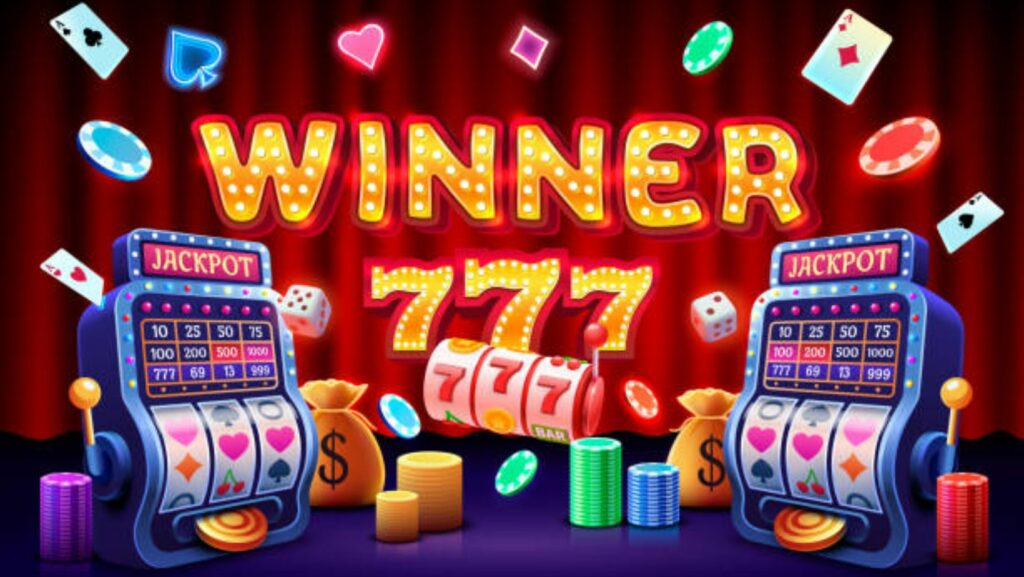Online slots have become a cornerstone of the online casino experience, attracting millions of players with their easy-to-understand gameplay and the potential for significant payouts. Aboutslots, an online slots offer a thrilling gaming experience powered by sophisticated technology like RNGs, paytable configurations, and carefully programmed payout rates. You can read how do online slots work, and it can also help you make informed decisions about which games to play. In this article, we’ll explore the fascinating world of online slots, from their history to the intricate mechanics that drive them.
A Brief History Of Online Slots
The evolution of online slots mirrors the rapid advancement of digital technology. The earliest online slots were simple, often mimicking the classic three-reel machines found in brick-and-mortar casinos. These early games featured basic graphics and limited features, but they paved the way for the vast, immersive slots we see today.
By the early 2000s, improvements in internet speeds and graphics technology allowed developers to create more complex and visually appealing slots. Features like progressive jackpots became standard, adding layers of excitement and engagement to the games. Today, online slots are incredibly diverse, with thousands of titles available, each offering unique themes, mechanics, and potential payouts.
The Development Of RNGs
Computer scientists developed the first RNGs in the mid-20th century to create sequences of numbers that mimic true randomness. These algorithms have since been refined and adapted for use in various applications, including online slots. In a slot machine, the RNG continuously generates numbers, even when no one is playing. The particular number determines the position of the symbols on the reels.
In the context of online slots, companies like IGT, Microgaming, and Playtech have developed sophisticated RNGs that power their games. These RNGs are rigorously tested by independent auditing firms to ensure they provide truly random outcomes.
Types Of Random Number Generators
There are two primary types of RNGs used in online slots
-
Pseudorandom Number Generators (PRNGs)
Most online slots use PRNGs. These generators use an initial seed number and a mathematical algorithm.

They produce sequences of numbers that appear random. Though PRNGs are not truly random because they rely on a starting point, they are secure. And they are unpredictable enough for gaming purposes.
-
True Random Number Generators (TRNGs)
TRNGs generate numbers based on unpredictable physical processes, such as electronic noise. These are rarely used in online slots because they are more complex and expensive to implement.
How RNGs Are Set Up
Setting up an RNG involves complex algorithms that ensure true randomness. Developers use seed numbers—initial values input into the RNG algorithm—to kickstart the randomization process. The RNG then produces a long sequence of numbers based on this seed, with each number dictating the outcome of a slot’s reels. Reputable online casinos and slot developers regularly test their RNGs through third-party auditors. These audits involve running millions of simulated spins to verify that the RNG behaves as expected, with no patterns or biases.
What Triggers A Slot Machine To Win?
Several factors contribute to when and how a slot machine triggers a win:
-
RNG Outcome
The RNG determines the combination of symbols that land on the reels. If this combination matches a winning sequence listed in the paytable, the slot triggers a win.
-
Bet Size
Some slots adjust the payout based on the size of the player’s bet. Larger bets may unlock higher potential payouts or activate additional paylines, increasing the chances of winning.
Volatility and RTP Rate: Key Concepts In Online Slots
Understanding the concepts of volatility and RTP can help you choose the right slot game based on your preferences and playing style.
Volatility
Slot machines are programmed with specific parameters to ensure they meet the legal requirements for fairness and payout percentages. These parameters include the Return to Player (RTP) rate, volatility, and paytable configuration.
-
High Volatility
These slots are riskier, offering larger payouts but less frequently.
-
Low Volatility
These slots offer smaller, more frequent payouts. That’s why they are suitable for players who prefer steady, consistent wins with lower risks.
RTP Rate
Each slot game is designed with a specific RTP in mind. This is determined by the game’s mathematical model, which dictates how often and how much the slot pays out.
-
High RTP
Slots with a high RTP (typically 95% or higher) offer better long-term payout potential. Higher RTP makes them more appealing to players who want to maximize their returns.
-
Low RTP
These slots have a lower payout percentage, meaning the house edge is higher.

However, they may offer larger individual payouts, attracting players who are willing to take on more risk.
Understanding Slot Paytables
Slot machines are carefully programmed to balance excitement and fairness. They ensure that players have a chance to win while the casino maintains a house edge. A slot’s paytable is a crucial element that every player should understand before spinning the reels. The paytable provides essential information about the game’s payouts, symbol values. It also has information aboutbonus features.
How To Read A Paytable
When you access a slot’s paytable, you’ll typically find the following information:
-
Bonus Symbols
Special symbols, such as Wilds and Scatters, usually trigger bonus rounds or free spins. The paytable will explain what each of these symbols does and how they can boost your winnings.
-
Bet Multipliers
Some games allow you to increase your bet, which in turn increases your potential payouts. The paytable will detail how different bet levels affect the game’s payouts.
-
Paylines
The paytable often includes a diagram showing the different paylines. It helps you understand where winning combinations can occur.
-
Symbol Payouts
Higher-value symbols typically offer larger payouts.
Conclusion
While luck plays a significant role, knowing the mechanics behind the games can give you an edge. Whether you prefer the convenience and variety of online slots or the vibrant atmosphere of land-based casinos, both offer exciting opportunities to win big.



